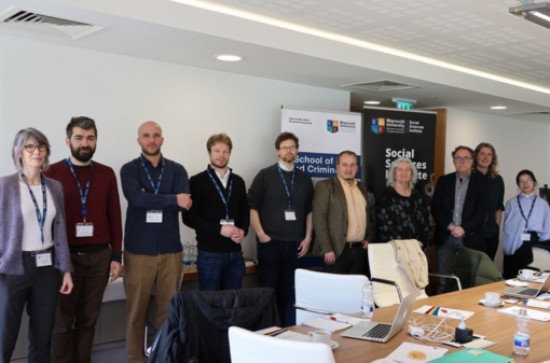
The School of Law and Criminology organized an international workshop at Maynooth University on 20-21 March 2025 coordinated by Dr. Oisin Suttle and Dr. Gürkan Çapar, where we sought to explore the evolving roles of epistemic authority and expertise within the landscape of global/international governance. The strong association between law and practical authority (commands and orders) has contributed to the limited attention paid by international lawyers to epistemic authority. However, numerous international institutions exert significant influence through non-binding guidance, expert assessments, and the dissemination of knowledge. For instance, organizations like the Intergovernmental Panel on Climate Change (IPCC) and the Organisation for Economic Co-operation and Development (OECD) provide recommendations that, while lacking formal enforcement mechanisms, profoundly shape state behaviours and policy decisions. This phenomenon raises critical questions about the nature and legitimacy of such theoretical or epistemic authorities in global governance. Various concepts, such as governance through expertise, technocracy, soft law, and global administrative law, have been used to describe how these governance modes shape state behavior. We invited participants from different disciplinary backgrounds to approach these institutions through the lens of legitimate authority with a view to exploring the role that epistemic authority plays in today’s global governance.
The workshop included speakers:
- Michael Zürn (Berlin Social Science Center), presented a paper titled ‘The End of Liberal Social Epistemology’
- Prof. Miodrag Jovanovic (University of Belgrade), presented a paper titled ‘Venice Commission: What Type of Authority? A Look from Serbia
- Pauline Westerman (University of Groningen), presented a paper titled ‘The twilight zone between science and politics’
- Lucas Dijker (University College Dublin), presented a paper titled ‘The (In)Compatibilities Between Technocracy and Democracy’
- Noah Corbett (University of Oxford), presented a paper titled ‘Regulatory Peer Review: Insulating or Politicising Expertise’
- Olia Kanevskaia (Utrecht University), presented a paper titled, ‘The tyranny of meritocracy? Redefining power and authority in global governance’
- Yunqing Liu (University of Edinburgh), presented a paper titled, ‘Examining the Coordination Among International Legal Institutions: Through the Lens of Theoretical Authority’
- Natalie Oman (University of Ontario Institute of Technology), presented a paper titled, ‘The interplay between practical authority and epistemic legitimacy in the ITLOS advisory opinion on climate change obligations under UNCLOS’
- Marcos de Armenteras Cabot (University of the Balearic Islands), presented a paper titled, ‘The IPCC as an Epistemic Authority: Its Role in Supporting the Authority and Legitimacy of Climate Change Regime’ (with Gürkan Çapar)
- Gürkan Çapar (Maynooth University), presented a paper titled, ‘The Legitimacy of Brussels Effect: The EU as a Virtous Authority?
